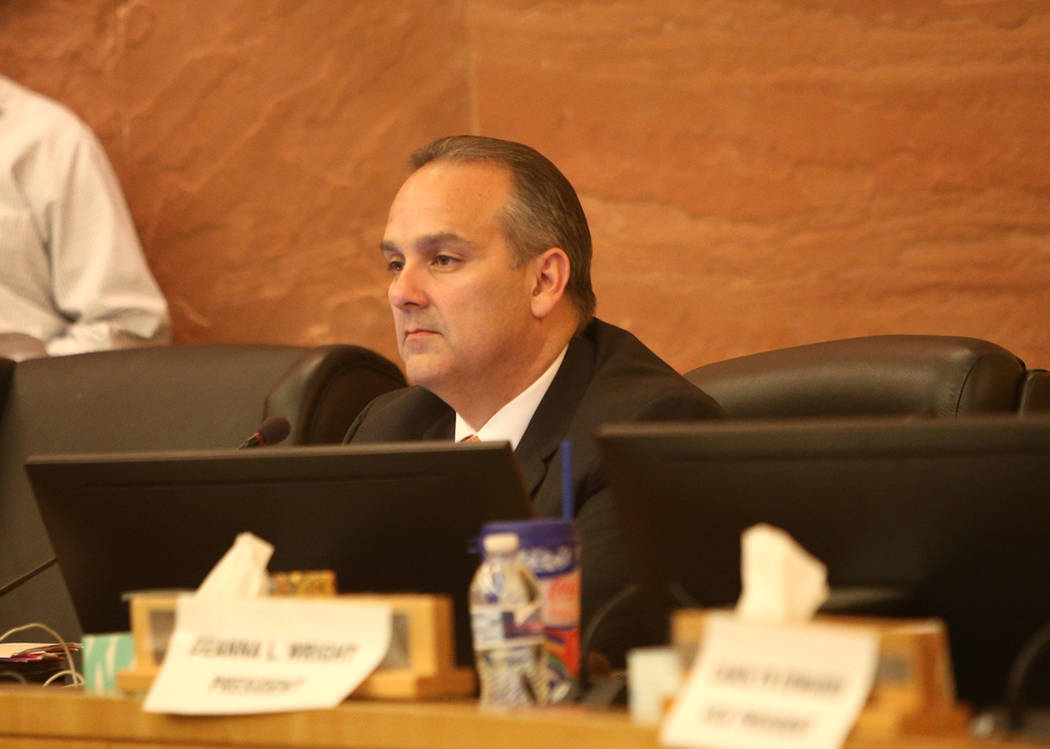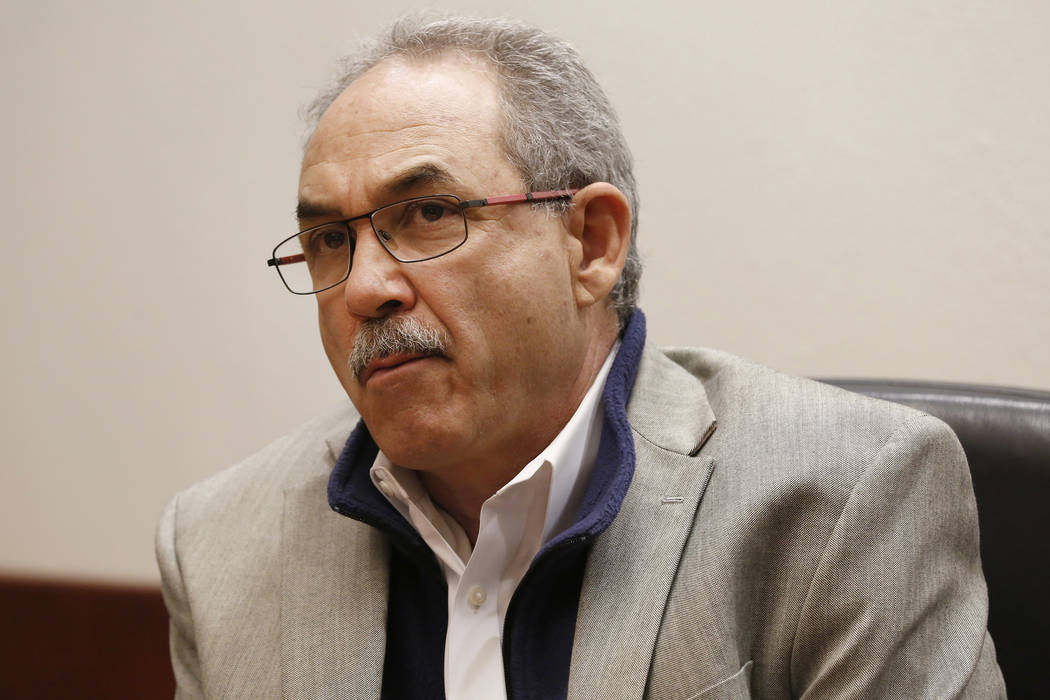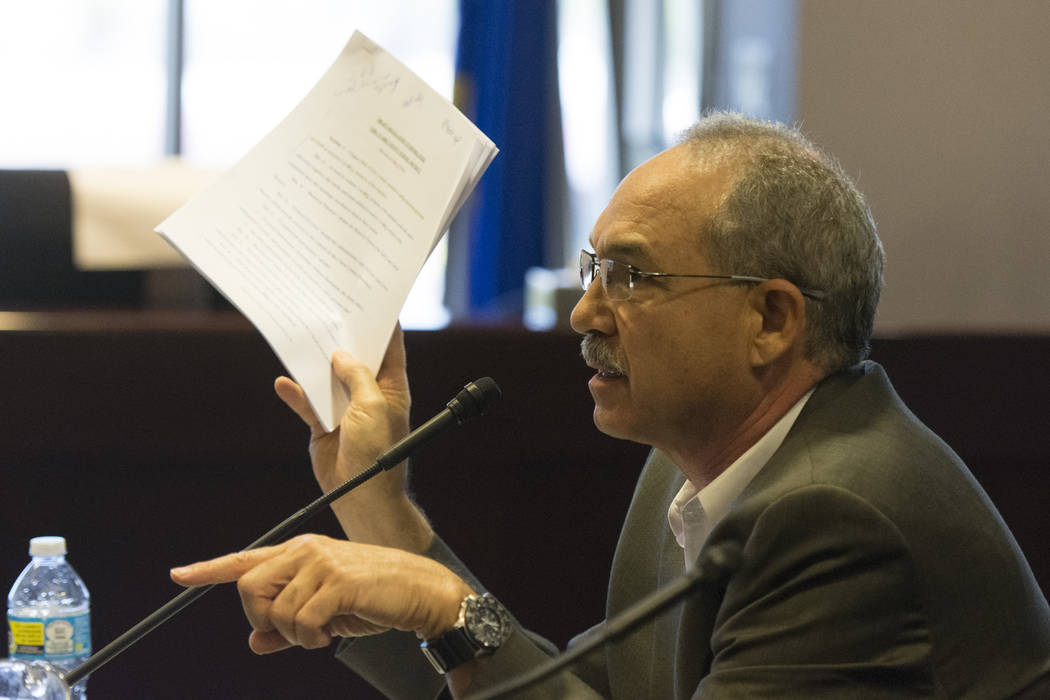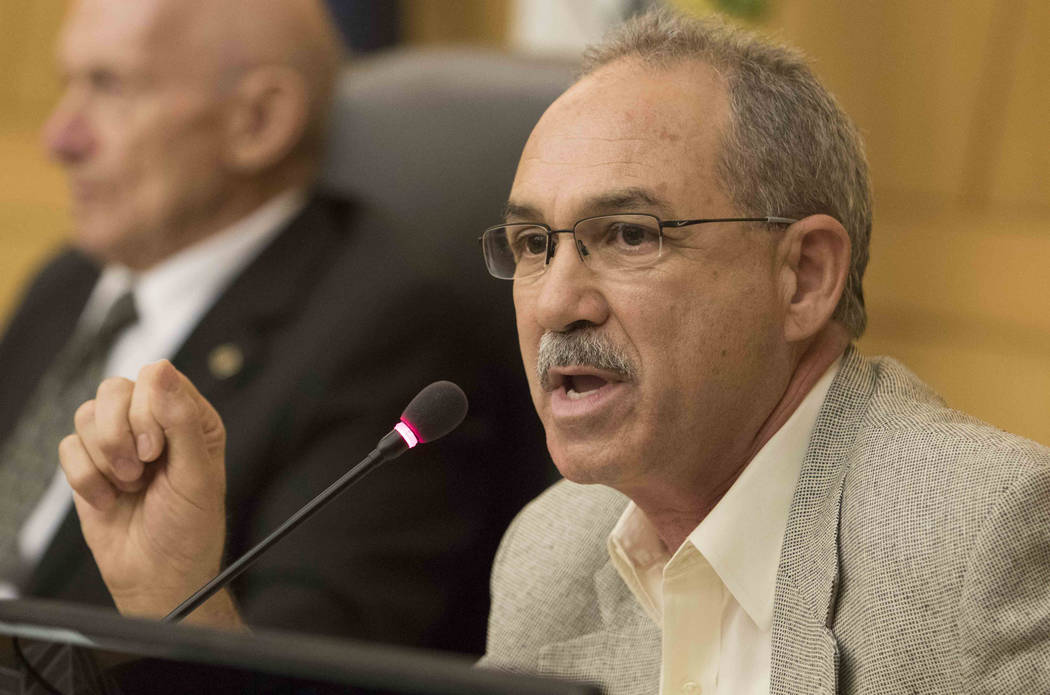New teacher contract cedes CCSD’s financial authority to teachers union
Just 70 days into his tenure as superintendent, Jesus Jara stands ready to abdicate financial control of the Clark County School District to the teachers union.
Last week, the district gleefully trumpeted a “historic” three-year agreement with the Clark County Education Association. The district agreed to stop fighting an arbitrator’s decision from last school year that gave teachers a step increase and increased contributions for the failing Teachers Health Trust. The district and union then pledged to work together at the next legislative session to secure more money, which the district would then use to fund additional pay increases.
When pressed for more specifics, the district stonewalled.
“The details of the agreement between CCEA and CCSD will not be released until the members of the association have the opportunity to ratify the agreement,” said district spokeswoman Kirsten Searer.
Funny. Just days ago, district officials eagerly trumpeted the parts of the agreement they thought would produce positive headlines. Now it falsely claims it won’t release details. Just three weeks ago, Jara told the Review-Journal editorial board, “We have to be transparent to the community.” So much for that.
Union Executive Director John Vellardita, however, has put out a video outlining the new provision in the contract. Those particulars reveal why the district wants to keep the details hidden for as long as possible.
According to Vellardita, the contract requires the district to determine by January 2019 how much per-pupil funding it needs to fund operations over the next two years. That’s impossible to determine when you don’t know much pay increases will be for the 2019-20 school year. Those pay boosts will increase spending for the 2020-21 school year. It also requires the district to “come to agreement on that amount” with the union, effectively giving the union veto power over district projections.
If the Legislature provides any unrestricted funding above the basic minimum funding amount, the district will give the teachers union 70 percent of it, per the contract. The district can’t even use that money to hire teachers to reduce class size. The funds must go to “increases in compensation and benefits” for current teachers.
So Jara’s plan to improve education is to pay the same people doing the same job more money. Talk about another example of how you can’t fix a broken system by pouring more money into it.
Paying top teachers to work in low-performing schools could help increase student achievement, but the district can’t use the money it promised to the teachers union for that. It has to go and beg the union for permission to use those funds for projects that would increase “retention in high-need areas.”
Now look at the fiscal problems this contract would create. The district has four other employee groups that will want raises if funding increases. The support staff, which just lost in arbitration thanks to the district’s financial difficulties, will be especially eager for a pay bump. Imagine the financial problems if an arbitrator rules the district has to boost the pay for other employee groups by more than 30 percent of new money, after the district committed to paying teachers 70 percent of new funding.
Then you have the difficulty of projecting student enrollment 18 months in advance. Even being off by 0.5 percent will cost the district millions. Overestimating student enrollment was one factor in the district’s 2017 budget deficit.
Even after all of that, if the union doesn’t like what the district offers, it can still go to an unelected, unaccountable, out-of-state arbitrator.
“We can still arbitrate,” bragged Vellardita. “Oh, you heard me right. We can still arbitrate over this article.”
Nevada’s collective bargaining laws already severely limit Jara’s authority. You don’t solve that problem by handing what little control you do have to the teachers union.
Victor Joecks’ column appears in the Opinion section each Sunday, Wednesday and Friday. Listen to him discuss his columns each Monday at 9 a.m. with Kevin Wall on 790 Talk Now. Contact him at vjoecks@reviewjournal.com or 702-383-4698. Follow @victorjoecks on Twitter.































